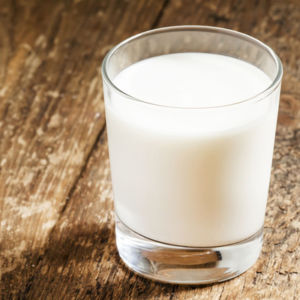
This piece will serve to help you better understand the basics of milk protein composition and various products they are used in. There are many more processes and byproducts than those described below but the purpose of this article is to provide a basic understanding of milk proteins.
The process to obtain milk proteins starts with the removal of water from pasteurized skim milk. There are two major proteins in milk: casein and whey. Casein, the major protein, accounts for approximately 80% of the protein. Whey accounts for about 20%.
Casein
Casein is obtained from milk by treating it with either acid or the enzyme rennet, both of which cause the casein to precipitate out. It is called acid casein or rennet casein depending on the process. The protein content of acid casein is in the range of 86-90% which is quite high and therefore desirable for multiple products in the food industry.
Acid casein itself is not soluble. Therefore it has to be converted into a caseinate by additional treatments which render it soluble and more functional. It is then able to be utilized in the food industry. Acid casein itself however has many industrial uses in items such as adhesives, inks, and concrete applications.
Micellar casein is casein that is obtained from milk by ultrafiltration. An advantage of micellar casein is that the protein itself is not denatured. Semipermeable membranes are used in the production and the casein is separated from the whey proteins which remain in the liquid portion. The casein is in the form of micelles (similar to globules) and is soluble.
The three major caseinate types are sodium, potassium, and calcium caseinate. They are typically produced in a spray dryer (although there are additional methods) and are in powder form. They each have characteristics specific to themselves but all have a high protein content of 88% in addition to low fat and low lactose. Caseinates are highly utilized in food manufacturing for a multitude of products.
Whey
Whey is the other major protein in milk and is a byproduct of cheese manufacture or production of micellar casein. The majority of whey powder is produced in a spray dryer. Whey protein concentrates can have a protein concentration as high as 80% and whey protein isolates have a protein concentration of 90%. The names of individual whey proteins are alpha lactalbumin, lactoferrin, lactoperoxidase, and glycomacropeptide (GMP).
Milk protein concentrates
Milk protein concentrates (MPC) are produced by taking pasteurized skim milk and passing it through a series of semipermeable membranes which results in ultrafiltered milk. The ultrafiltered milk contains both casein and whey proteins. It is then spray dried into a powder with a protein content of up to 85% (MPC 85) or even 90% which qualifies it as a milk protein isolate (MPI).
References
https://www.cdr.wisc.edu/sites/default/files/insider/resources/dried_dairy_ingdients.pdf

